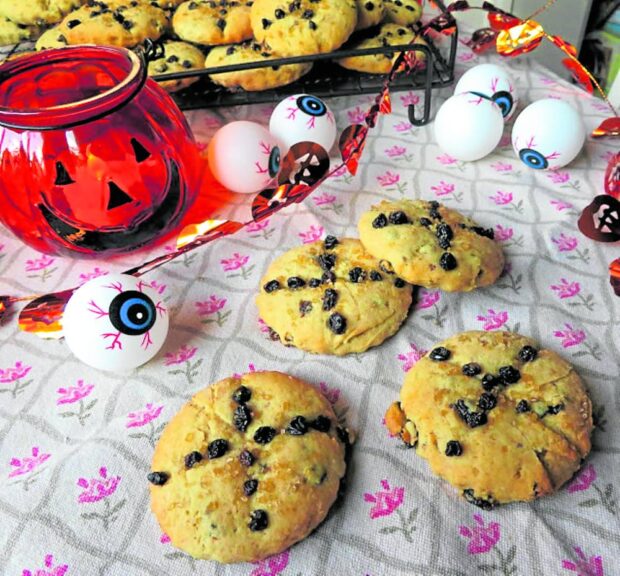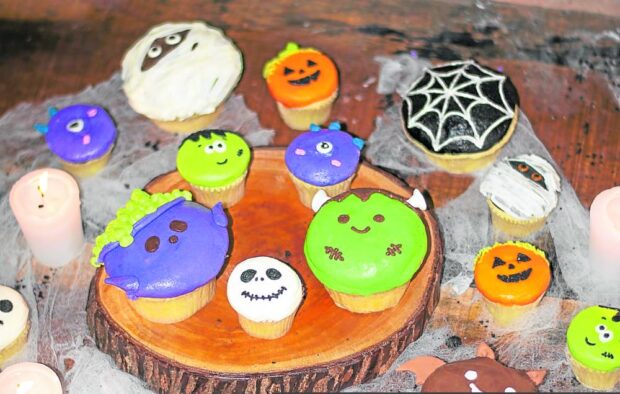
‘CROSSED’ Soul Cake by The English Kitchen —The English Kitchen Facebook
Happy Halloween! Halloween is such a fun event marked by trick-or-treating and dressing in costume, whether it be as a movie character—I’m sure this year will be marked by Wednesday Addams and Barbie—or an evil spirit, or simply as your favorite iconic tramp. For some, it’s a free pass to let loose and bring sexy back. So it’s easy to miss that in fact, Hallow’s Eve, preceding All Hallows Day or All Saints’ Day, is a day of holiness, not just spookiness!
Here in the Philippines, some mistakenly attribute Nov. 1 as Araw ng mga Patay (Day of the Dead) but, in fact, this day is Araw ng mga Santo as Nov. 1 is All Saints’ Day while Nov. 2 is All Souls’ Day. The three dates —Oct. 31, Nov. 1 and Nov. 2—make up Allhallowtide, which is the triduum of All Saints Eve (Halloween), All Saints’ Day (All Hallows Day) and All Souls’ Day. (Hallow, by the way, means ‘to make holy’.)How beautiful is that? Three days of prayer for our saints and for the souls of the faithful departed!

SPOOKY SWEETS Sonja’s Halloween cupcakes —Sonja’s Cupcakes
Soul cakes
Trick or treat has its origins in prayer as well … but with biscuits! In 15th-century England, Bavaria and Austria, among other countries, there was a tradition called ‘souling,’ where children would knock on doors during Allhallowtide collecting ‘soul cakes’ in exchange for praying for the giver’s dead friends and relatives. Soul cakes were offered for souls ‘to eat’ but the recipients or ‘soulers’ who would pray for them could act as their representatives.
These cakes are actually more like biscuits, resembling a shortbread biscuit or what I would imagine here in the Philippines as a round-shaped polvoron. Its identifying feature is the cross on it, similar to hot cross buns.
Apparently, we used to have this tradition in the Philippines too! It is called pangangaluwa (kaluluwa is Filipino for soul). It is said to still be practiced in some provinces but slightly different from the English tradition as ours includes singing (It can’t be a Filipino tradition without singing!). Carolers, usually children or youth, go house to house singing in character as souls who are in purgatory. Meanwhile, the homes that are visited will offer rice cakes to the ‘lost souls’.

